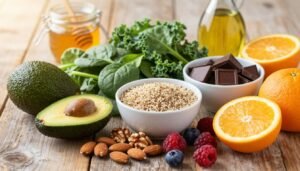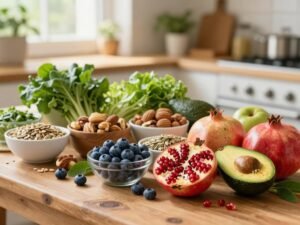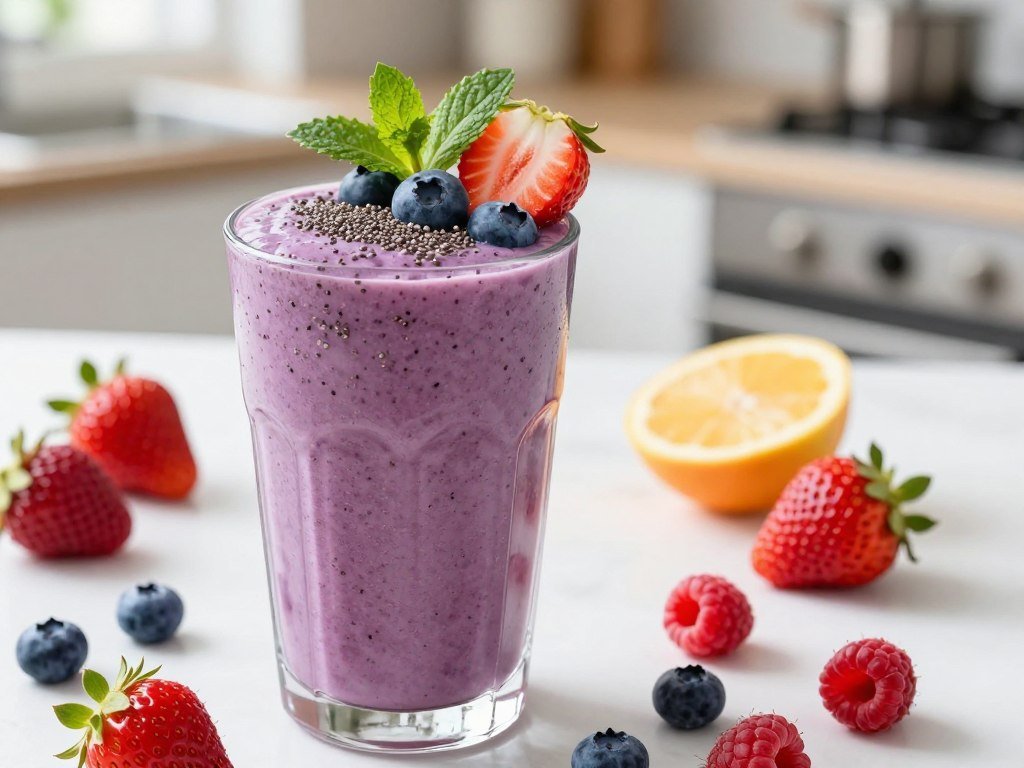As an Amazon Associate I earn from qualifying purchases.
Probiotic Foods Boost Digestive Health
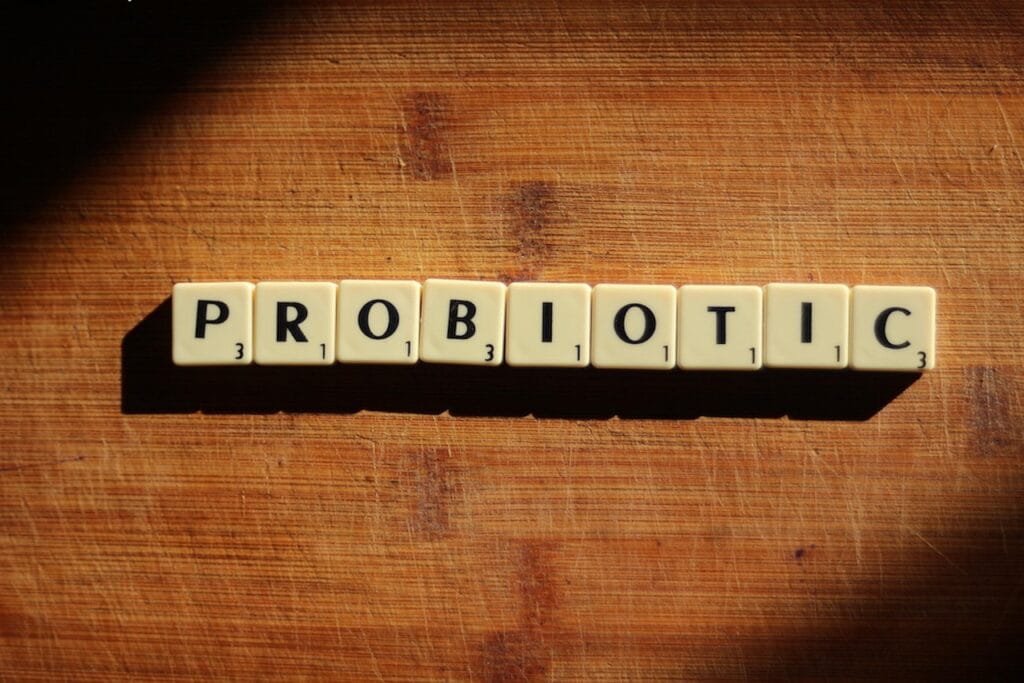
Healthy Gut Microbiome
Introduction: The Importance of Gut Health
Your gut microbiome plays a crucial role in your overall health. A balanced gut supports digestion, immunity, and even mental well-being. Probiotic foods introduce beneficial bacteria that enhance your digestive system, promoting overall health.
What Are Probiotic Foods?
Probiotic foods contain live bacteria that provide health benefits when consumed. These foods help restore and maintain gut flora, which is essential for digestion and nutrient absorption.
How Probiotics Improve Digestion
Probiotics aid in breaking down food, absorbing nutrients, and balancing harmful bacteria in the gut. They help reduce bloating, gas, and digestive discomfort.
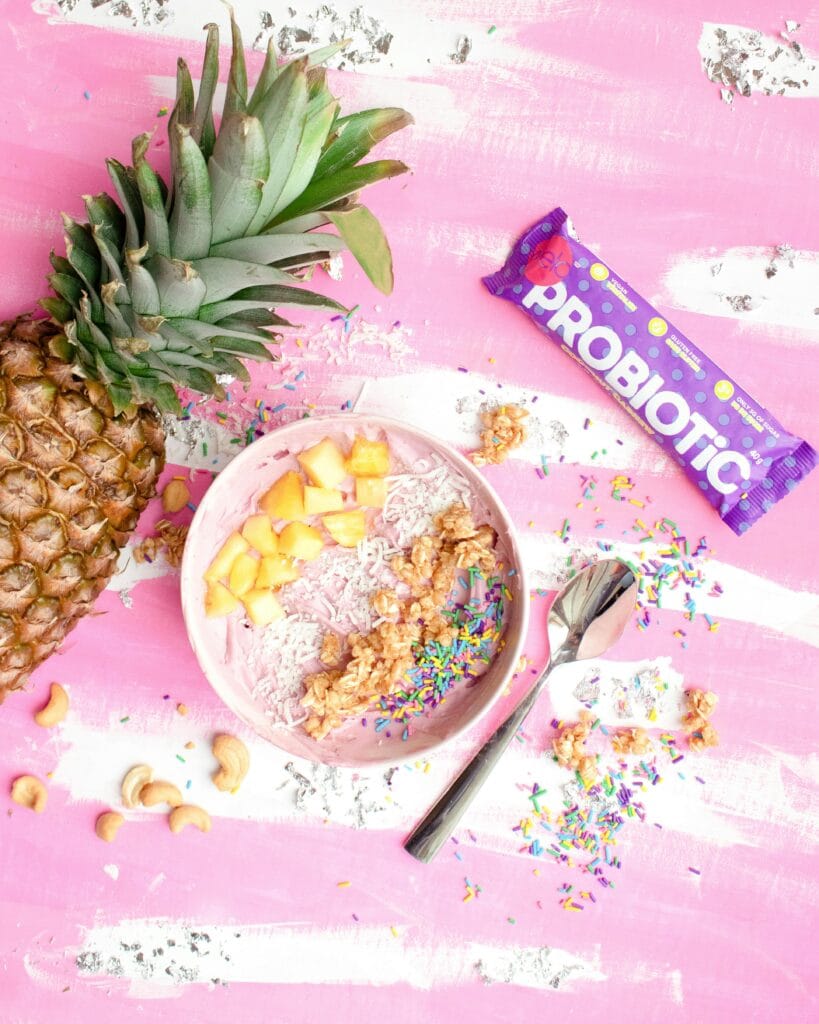
Top Probiotic Foods for Gut Health
Dairy-Based Probiotics
Yogurt
Fermented Vegetables
Sauerkraut
Kimchi
Fermented Beverages
Kombucha
Soy-Based Probiotic Foods
Miso
Tempeh
Yogurt: The Ultimate Probiotic Powerhouse
Yogurt is one of the most well-known probiotic foods. It contains strains like Lactobacillus and Bifidobacterium, which support digestion and immune function
Kefir: A Potent Probiotic Drink
Kefir: A Potent Probiotic DrinkKefir: A Potent Probiotic Drink
.
Fermented Vegetables: Sauerkraut & Kimchi
These probiotic-rich foods improve gut flora and enhance digestion. Sauerkraut is rich in fiber and vitamins, while kimchi contains beneficial bacteria that support gut health.
Kombucha: The Probiotic Tea
Kombucha is a fermented tea packed with probiotics and antioxidants. It aids digestion and supports liver health.
Miso & Tempeh: Probiotic-Rich Soy Products
These fermented soy products provide essential probiotics while being rich in protein and nutrients.
The Role of Prebiotics in Gut Health
Prebiotics are fibers that feed probiotics, enhancing their benefits. Good sources include bananas, onions, and garlic.
How to Incorporate Probiotic Foods into Your Diet
Add yogurt to breakfast
Drink kombucha as a refreshing beverage
Use miso in soups
Include sauerkraut in meals
Common Myths About Probiotics
Myth: All fermented foods contain probiotics
Fact: Not all fermented foods retain live cultures after processing.Myth: Probiotics work instantly
Fact: It takes consistent consumption for results.
Potential Side Effects and Considerations
While probiotics are generally safe, some people may experience bloating or digestive discomfort. Those with compromised immune systems should consult a doctor before adding probiotics to their diet.
Frequently Asked Questions
1. How often should I eat probiotic foods?
Daily consumption provides the best benefits for gut health.
2. Can probiotics help with weight loss?
Yes, they can aid metabolism and digestion, which may support weight management.
3. Are probiotic supplements as effective as food sources?
Whole foods provide additional nutrients, but supplements can be beneficial if consumed appropriately.
4. Do probiotics help with bloating?
Yes, they can reduce bloating by improving digestion and gut-bacteria balance.
5. Can I get probiotics from non-dairy sources?
Absolutely! Fermented vegetables, kombucha, and miso are excellent non-dairy options.
6. Can children consume probiotic foods?
Yes, but it’s best to introduce them gradually and consult a pediatrician if needed.
Amazon and the Amazon logo are trademarks of Amazon.com, Inc or it's affiliates.
Related Posts
- Amazing Top 10 Superfoods to Boost Your Immune System
Amazing Top 10 Superfoods to Boost Your Immune System Maintaining a robust immune system is…
- Positivity Its Impact on Health
Positivity and Its Impact on Health Positivity: The Path to a Healthy Lifestyle and Overcoming…
- Biohacking Tips for Optimal Health
Biohacking Tips for Optimal Health What If You Could Hack Your Body for Peak Performance?…

